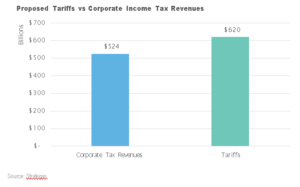By Anthony Hernandez, CFP®
After wrapping up end-of-year reviews, Angela and I found a common theme: A well-crafted budget is a key tool for financial success for families and individuals. This seemingly small piece of the financial plan (a budget) is the foundation, and if the foundation (your budget) weakens, it can’t support your financial plan and goals. While it can be easy to set a budget one time, that leads to a new question: what is the best way to monitor your budget? Budget meetings are a great way to get back on the same page with your significant other and check in with yourself to give you the confidence to keep working toward your goals.
Before we jump into budget meetings, let’s define a budget: A budget is how you and your family spend your money. I like to view budgets like a diet. While you may not be on a specific diet, you still practice a diet with how you eat. For some people, it is easier to monitor their diet by looking back at what they ate, and for some, it is easier to set a meal plan beforehand and follow it daily. Just as a diet is to health, a budget is to financial wellness. What’s important is to find a system that helps you be the best you can be.
Setting up a budget can feel awesome; you feel confident that you know where your money is going, and it helps you feel less stressed about expenses that may pop up. After time passes, it can sometimes feel like we don’t have control over our budget or that it’s simply easier not to think about it anymore. While some families may have budget meetings every week, it’s not essential. What is essential is creating a system that works for you and keeps you working towards your goals. This can be a big yearly meeting with small monthly check-ins or quarterly meetings to break up the planning throughout the year. Just because one system may not work for you does not mean you should give up budget meetings. It took me a few tries to find the right system for me, and it still changes from time to time as life progresses.
Currently, I practice doing a big budget meeting at the beginning of the year, looking over everything, and then I have small quarterly meetings to review the past and look forward to the next quarter. But occasionally, I need to do an unplanned check-in of my spending because I feel like I’m losing control over my budget. It’s always eye-opening to take some time and review where my money is going when I start to feel lost. While it’s usually food that throws off my plan (I know some of you can relate), reviewing it gives me confidence, knowing that I am saving towards my goals and spending money that aligns with my values.
If you’re still not sold that budget and budget meetings will help you build a solid financial foundation, here are some other ways it will help you toward a balanced, sustainable life:
- Financial Clarity: One of the advantages of regular budget meetings is the clarity they bring to your financial picture. Families and individuals often struggle with various expenses, debts, and savings goals. A budget meeting allows you to review your income and expenditures, providing a clear understanding of where your money is going and how it aligns with your financial goals.
- Goal Setting and Prioritization: Discussing your short-term and long-term financial goals during a budget meeting builds confidence and brings back the reason for doing all of this. Whether saving for a dream vacation, buying a home, or planning for your children’s education, a budget helps prioritize these objectives. You can make steady progress without compromising your lifestyle by assigning specific financial allocations to each goal.
- Debt Management: Many families and individuals grapple with various forms of debt, from credit cards to student loans. A budget meeting is an opportune time to assess your debt situation and formulate a strategy for repayment. You can make significant strides toward financial freedom by allocating a portion of your income to debt reduction.
- Emergency Fund Building: Life is unpredictable, and unexpected expenses arise. A budget meeting allows you to discuss and establish an emergency fund, providing a financial safety net for unforeseen circumstances. A dedicated emergency fund ensures you can navigate unexpected events without derailing your long-term financial plans by accumulating debt.
- Expense Review and Cutbacks: A budget meeting provides an excellent opportunity to review your monthly expenses critically. You can redirect those funds toward savings or debt repayment by identifying areas where you can cut back without sacrificing your quality of life. It’s about balancing enjoying the present while still securing your financial future.
- Family Financial Education: Incorporating family members into budget meetings fosters partnership and financial education. Discussing financial decisions openly with your spouse and children creates a sense of financial responsibility and helps them understand the importance of budgeting in achieving shared family goals.
So, there you have it – budget meetings are like a compass guiding you towards your financial goals. It’s not about being boring or rigid; it’s about being smart and savvy. Take your time, don’t be afraid to fail, and find a system that works for you. Let’s kick it up a notch in 2024 together – one budget meeting at a time! 🚀💸










 by Launch Kits
by Launch Kits